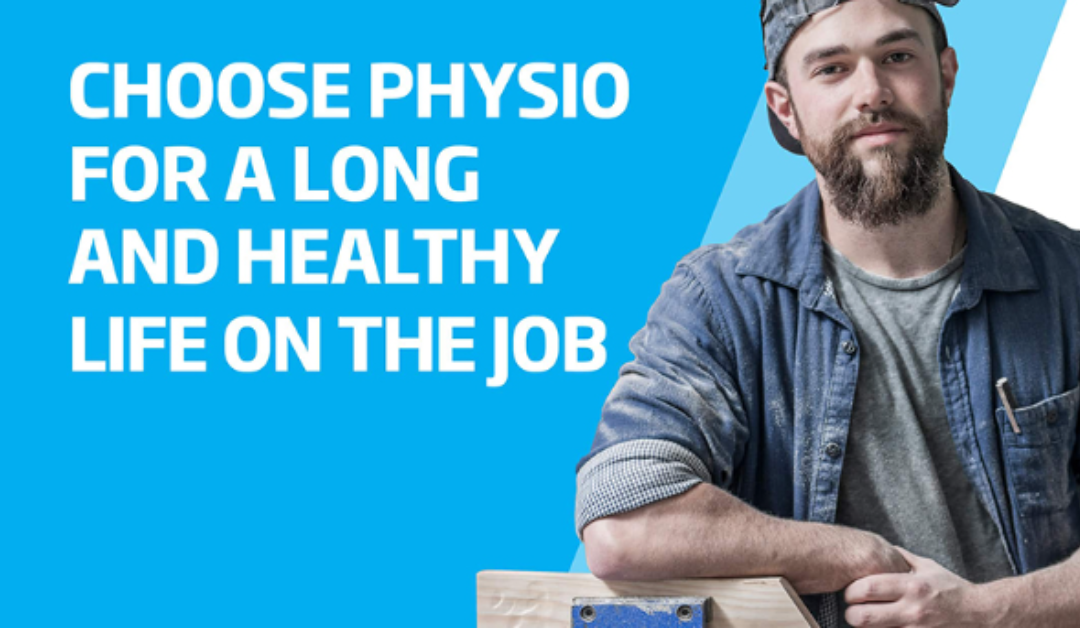Tradies work physically demanding jobs. Their body is their number 1 tool and they rely heavily on this to complete their work on a day to day basis. This can then cause or exacerbate injuries that can often force them to take time off work. The average time off due to workplace injury is 5-6 weeks, which can put enormous pressure on families and of course your wallet.
To turn this around, campaigns like National Tradie Health Month run by the Australia Physiotherapy Association (APA), look at ways we can improve their workplace culture and practices. The overall goal being that tradies focus on their health, safety and well being, so they can have a long and healthy life on the job!
Most Common Injuries for Trades
Being a tradie involves using your entire body to undertake your work.
The most common injuries are –
- Back Pain
- Shoulder Injuries
- Knee Injuries
- Ankle sprains
Back Pain and Injuries
With one in six Australians suffering from low back pain, tradies need to focus more on tradie health and work even harder to avoid this. They are constantly lifting heavy items, getting into awkward physical positions and completing repetitive tasks that puts them at even greater risk.
As you may know, back pain is debilitating, and can often develop into a chronic condition that will see tradies out of work for long periods, so it needs to be treated quickly and carefully. Physiotherapists are experts in the function of muscles, joints, ligaments and bones, and can assist with recovery and avoiding musculoskeletal injuries in the future.
WATCH TRADIE HEALTH VIDEO – Act early when it comes to low back pain!
How do I reduce my risk of being injured at work and improve my tradie health?
Many injuries often occur after ignoring pain and niggles, rushing at work, improvising with tools or equipment or being distracted by everyday tasks.
Here are some ways tradies can reduce the risk of serious injury –
- Start the day with some targeted dynamic stretches
- Stretch after a period of time throughout the day and at the end of the day to cool down
- Take regular breaks to interrupt repetitive manual tasks and try to vary tasks to help maintain our focus and avoid fatigue
- Communicate with your workmates clearly to ensure you are working in the most efficient and safe manner
- Do not rush your tasks
- Clear your mind so you can focus and pay attention to what you are doing
- Think through your task before starting. Consider the best way to perform, what tools are best to use, do you need assistance, or is it safe?
- Take your age into consideration. You may need to adjust your tasks or use additional equipment to assist.
- Be willing to speak up if you are unsure about how to safely perform the task you have been asked to do
- Adjust and set up your work vehicle to your needs
- Stay fit and healthy
- Get enough sleep each night
- If you have a niggle don’t ignore it. Work on some ways to improve your posture and do some stretches or use the RICE method as required. See your physiotherapist to get professional help and advice, earlier rather than later.
Regular Stretches to try to reduce risk of injury
Flexibility is extremely important for tradies as they are often in awkward positions and using repetitive movements. In order to improve flexibility you will need to perform regular stretching. It just takes 5-10 minutes of dynamic stretching every morning before work to make a big difference and help you warm up for the day. It’s particularly helpful to stretch the quadriceps, hamstrings, back and shoulder muscles.
Here are some great exercises to try –
- standing hamstring stretch
- piriformis stretch
- pec stretch – to reduce the tightness when working on items in front of you all day
- forearm stretch or massage – to reduce the risk of injury from gripping tools all day
How can Physiotherapy help tradie health?
Physiotherapy can be very beneficial in helping to prevent and manage injuries that occur to tradies. Physiotherapists are trained to prevent and treat musculoskeletal concerns, can provide training on how to perform manual tasks and can also help with your fitness, flexibility and strength to ensure your body is able to cope with your workload.
If you do have a niggle or injury, it’s always best to see a physiotherapist early before it turns into a more serious concern. They can assist you with how to manage your work without making the injury worse, and can provide treatment and exercises to ensure the fastest recovery time.
The Physiotherapists at Sandgate Physical Health Clinic are all highly experienced and qualified to assist with treatment and recovery from an injury and prevention of future injuries, so you can have a long and healthy life on the tools!
Book Now!
Read more about SPHC Physiotherapy services
Read more about Our Team
Read more from Australian Physiotherapy Association

